For the five months Dwight Williams had it, the apartment was perfect.
Williams was homeless before he got keys to his rent-subsidized studio earlier this year, staying in church shelters mostly, but spending some nights outside. It was a hard life and, as a self-described homebody, one he was happy to leave behind. He hated carrying his things with him everywhere, clutching them tight for fear they'd be stolen. The specter of relapse haunted him during his time outside. He wanted to come home, to lock his door, to rest. And he found that home for himself, in a large brick building managed by Bellwether Housing, overlooking downtown Seattle's Freeway Park.
"It's your castle," Williams said. "Having an apartment, even when it's bad out there, at least you can shut the world out."
But the security and peace Williams treasured proved fleeting, as a gap in key social services not tuned to Seattle’s high rents yawned wide enough for the soft-spoken 51-year-old to fall through. He’s homeless again, just months after moving in.
Williams did nothing wrong — his rent was paid, he kept his appointments. He took daily trips to receive a dose of methadone that keeps his heroin addiction in check. He didn't run afoul of the building's rules or cause trouble.
He did exactly what the system told him to do. And because he did so, he lost his home.
When Williams moved in, his housing was covered by a state housing benefit, the Housing and Essential Needs program. It's a temporary stopgap for people on their way to gaining federal disability status. Williams has Type 2 diabetes, which causes pain in his legs, making it difficult for him to work. Even before being connected to the housing program, Williams had applied for federal Supplemental Security Income (SSI), for people with permanent disabilities.
What Williams did not expect was that qualifying for federal disability payments would result in his being kicked off the state housing assistance — that's how the program was designed to work.
Even five years ago, that transition from one to the next made sense. The federal benefit was an improvement from the state's stopgap. For people with disabilities reliant on social services, the progression represented a step up the ladder.
But thanks to skyrocketing King County rents and lagging disability income, support from the state’s housing program now stretches further than SSI for people who are permanently unable to work. And yet the state benefits are still considered a bridge, even though the "bridge" has become more valuable than the benefit it leads to.
So when Williams qualified for federal disability four months after moving into the newly renovated Cambridge Apartments, he could no longer make rent, even in a subsidized apartment considered affordable housing. With almost no warning, he tumbled back into homelessness, where he began.
"I didn't know I was going to get blindsided by that," Williams said.
Dozens of renters living in buildings managed by Bellwether Housing are facing a similar transition. Those experiencing a temporary disability may qualify for a higher federal benefit, and may also supplement their income with work. But those whose ability to work is permanently hindered are left scrambling to find housing elsewhere or returning to homelessness.
"They put me right back in the street where…," Williams said haltingly, fighting tears. "I get choked up talking about it. They put me in a situation right back where I just came from. It's been rough."
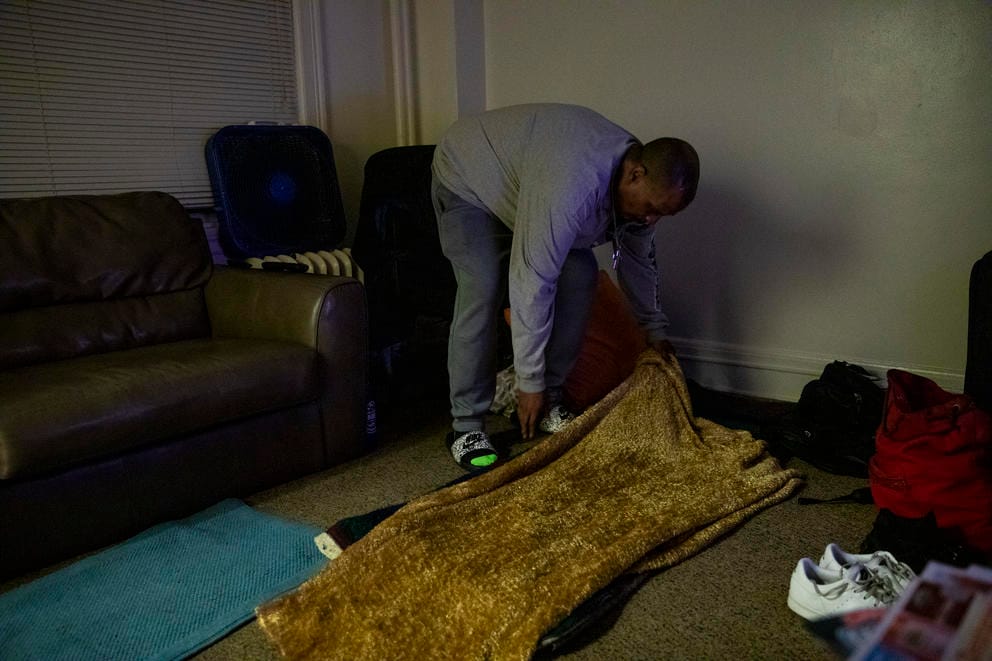
In his uncle’s one-bedroom apartment that he shares with two other people, Dwight Williams makes a pallet on the floor to sleep on, Sept. 17, 2019. Since losing his home, he switches between staying at his uncle's apartment and in shelters. “I just can’t mentally or physically handle a shelter,” Williams says.
A growing gap
After recently opening two new buildings and reopening the Cambridge, Bellwether leased 300 new affordable apartments about the same time. Of those, 35 tenants — over 10% — entered on the state program.
"I think in the rush to get everything leased up, we knew we had some of the folks with these temporary vouchers, but I don't think we were doing the math, like, 'Oh my gosh, there's 35 of them and they're probably all gonna lose this voucher at close to the same time,' " said Susan Boyd, Bellwether's CEO.
The problem is with two Washington state programs intended as short-term stopgaps for people who cannot work and are waiting to qualify for federal disability: the Housing and Essential Needs housing subsidy and the Aging, Blind or Disabled cash benefit. Both were created to replace state cash-assistance programs the Legislature cut during the recession. In 2018, the state Legislature changed the rules so people with long-term disabilities could access both.
However, the state programs are contingent on the recipient seeking federal disability benefits, and are not a permanent subsidy. "That's kind of a critical piece of the process so that we as a state are helping to bridge folks through that transition," said David Hlebain, basic needs campaign manager at the Statewide Poverty Action Network.
For those with a permanent disability or who are unable to work, disability amounts to just $771 a month.
In places where apartments rent for less than that amount, state benefits may still act as a bridge. Hlebain said he had spoken with a representative from Spokane County who said the maximum rent subsidy they paid out through Housing and Essential Needs was $675, still less than federal benefit.
In King County, however, the maximum subsidy provided by the state housing program is $1,000, a reflection of the cost of housing. The average cost of renting an apartment, with utilities, has increased in the county by $645 since 2014, to about $1,400. Meanwhile, federal disability payments through SSI have gone up by just $50. Even a rent-restricted studio intended for someone making less than $45,000 a year still costs over $1,000.
"I think the fundamental issue is that folks that are on SSI cannot afford to live here," said Dan Wise, division director with Catholic Community Services, which administers the state housing program in King County.
"It's only really been in the last five or eight years where you cannot find an apartment for rent — even in a rent-restricted building like a Bellwether building — that is below your SSI amount," said state Rep. Nicole Macri, D-Seattle. "So all of those things are converging to sort of change the incentives. Why would anyone get SSI when you're getting less money than your [state] benefit? Well, that has not historically been true. But it is now."
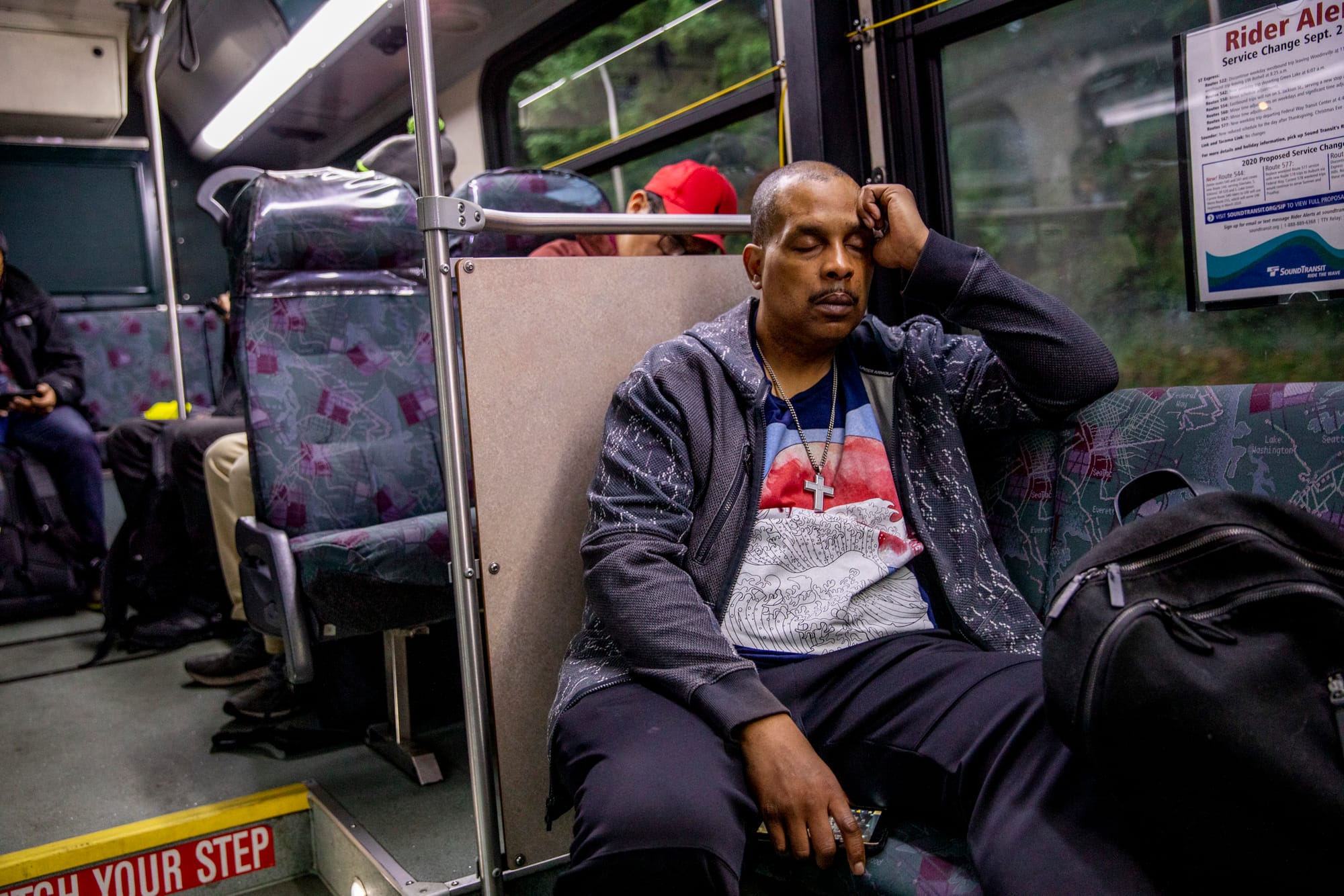
Trouble disguised as good news
Williams first saw flyers for the state’s Housing and Essential Needs program while living in a shelter. He jumped at the chance. "First train smoking, I'm gonna get on it," he said.
Williams succeeded and used the assistance to cover his $890 rent at Cambridge Apartments. He also received $197 a month as part of the state disability program. With food stamps, he was making it work.
The Cambridge Apartments near Interstate 5 had just been remodeled. The boxy brick building, built in the 1920s, retained its old charm under a new shine that Williams couldn't help but admire. "They did a nice job," he said.
More than that, it was quiet. His neighbors were respectful. And it was near everything he needed — doctors, methadone, services. "It was just perfect," he said.
Four months later, trouble arrived disguised as good news.
It was early summer when Williams got a note from the federal government saying he qualified for SSI. He was elated, believing he'd soon have an extra $771 for food and whatever else he needed. But then he got a second note: he was being dropped from the state programs.
At the income level provided by state benefits, the studio he loved so much was within reach. On SSI, though, it was not and there was no turning back. The staff at Bellwether — as frustrated by the situation as Williams — allowed him to stay through July. Eventually, they signed a mutual termination agreement with Williams to avoid putting an eviction on his record.
Williams said, "It's frustrating. It's just so frustrating. The compassion for people is not there. "
Bellwether can't lower rents for all 35 people without risking a default on the debt it took on to complete its three projects, said Boyd, the Bellwether CEO. The organization is searching for ways to keep tenants housed. But Bellwether has already signed mutual termination agreements with at least four tenants, including Williams, who could no longer pay the bill.
Catholic Community Services has 938 clients on the state’ stopgap program in King County, according to a spokesperson. Wise, the organization's division director, said many of the clients are temporarily disabled and are therefore better positioned to transition off the benefit.
But everyone transitioning to SSI is at risk of homelessness. Bellwether happened to get a particularly clear view of the issue because its new apartments were all leased at the same time.
"It's extremely frustrating," said Elliot Swanson, resident services manager at Bellwether. "It feels like one hand doesn't know what the other is doing. ... The very first person that this happened to in April was legally blind and was never going to be able to work on SSI."
Swanson added, "It feels absurd to me that they played by the rules, got their services and now are being hung out to dry."
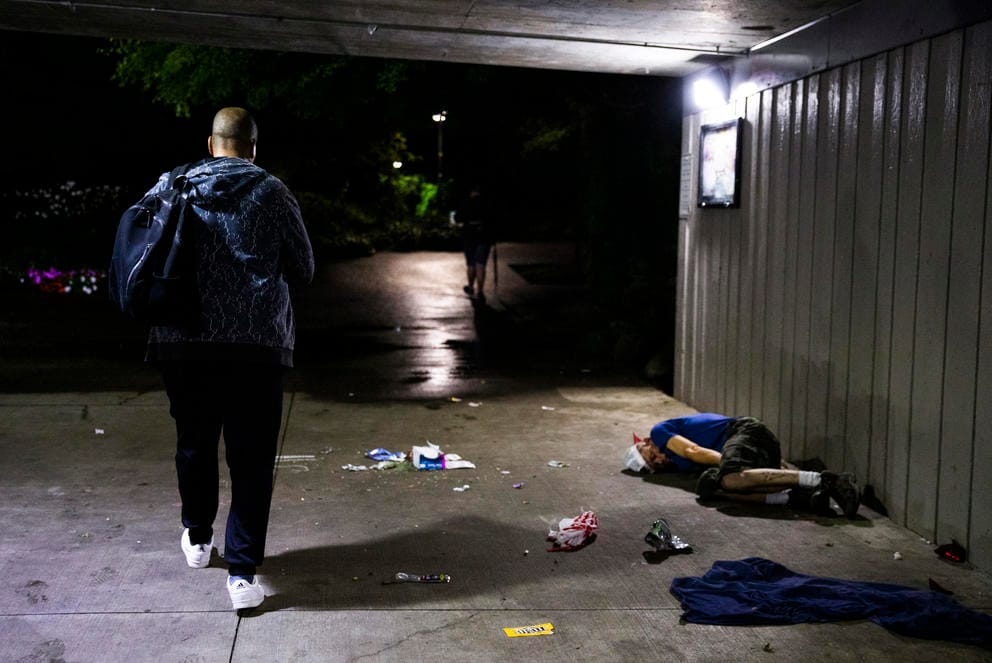
Dwight Williams walks past a sleeping person in Freeway Park on his early morning walk to the bus, Sept. 18, 2019. Every morning when he walks through the park, he says it reminds him of where he was and where he he could end up again after losing his Housing and Essential Needs assistance and losing his home. “It’s frustrating because that could be me,” Williams says. “I have done this before. I have slept outside.”
Conversations in Olympia
Demand for the state housing benefit far outstrips supply, as reflected in the Legislature's move to add $14.5 million to the program last session, an increase of about 25 percent. Advocates had called for its doubling.
There aren't any specific policy fixes lined up for the Legislature's 2020 session, said Macri, the Seattle representative. But, she said, there is acknowledgment of its issues.
"The conversations are about how we maximize federal benefits to which Washington residents are eligible and make sure they can meet their housing needs," she said.
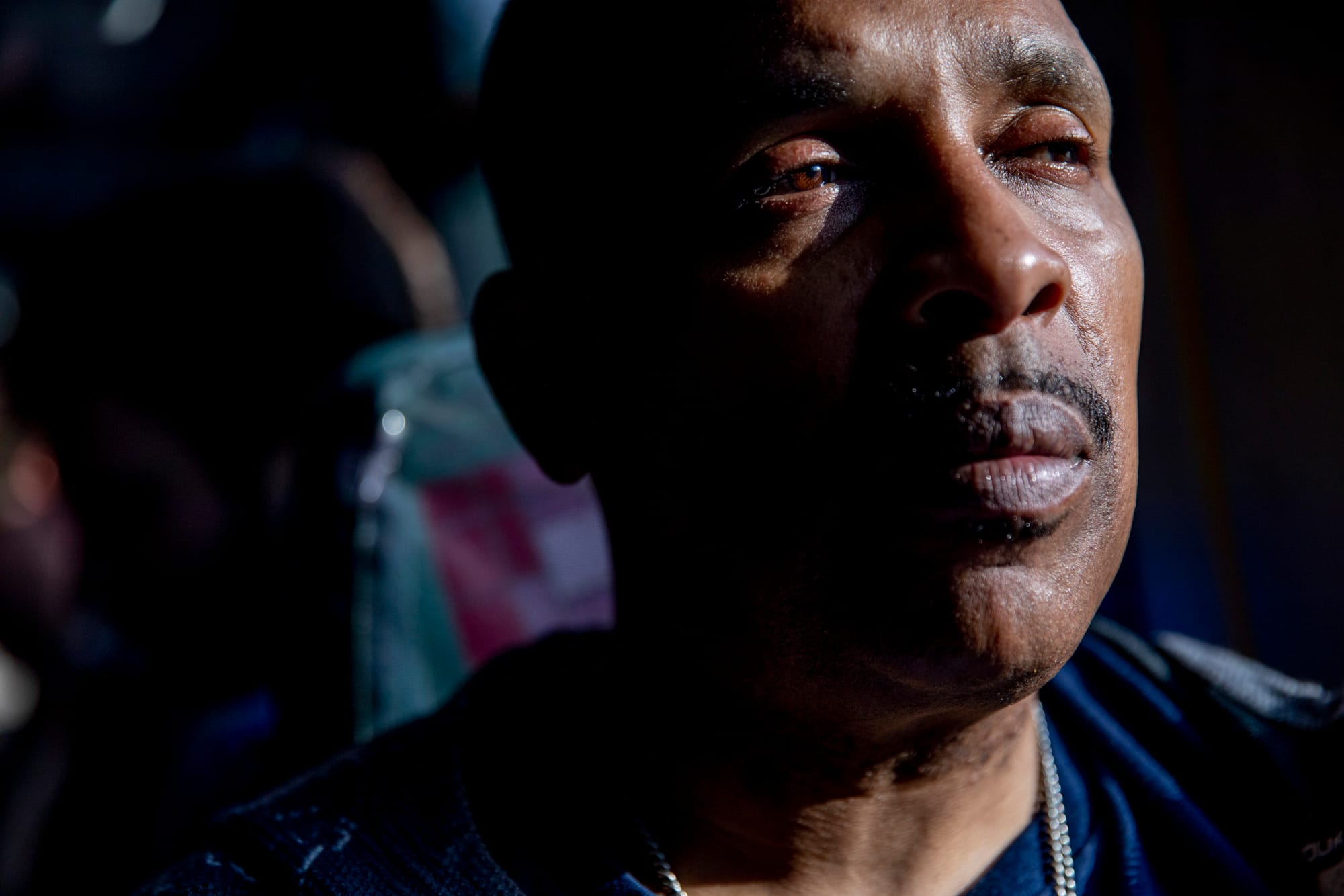
For Catholic Community Services’ Wise, a "shallow subsidy" — set-aside money to ensure people transitioning stay housed — could go a long way.
Bellwether's Boyd agrees. Doing a quick, back-of-the-envelope calculation, she estimates the organization would need somewhere between $300,000 and $400,000 a year to house all 35 clients at risk of eviction. She said Bellwether would also be happy to lower the overall rents of their apartments to make them affordable to people on SSI, but that the organization can’t currently afford that.
Michele Thomas of the Washington Low Income Housing Association said she's optimistic the Legislature is interested in making improvements. With the Democrats in the majority, she and other housing advocates think they can set themselves to building the program, not just trying to prevent it from being cut, she said. The Republicans’ original proposed 2017 budget — when they last controlled a chamber in Olympia — would have eliminated the entire Housing and Essential Needs program.
"Politically, the problem we've had for years is that we, as the affordable housing and homelessness community, have had to fight tooth and nail to even save" that program, Thomas said. "It has been the punching bag, the target for conservatives in Olympia for many years. … That type of environment hadn't created opportunities for improvement."
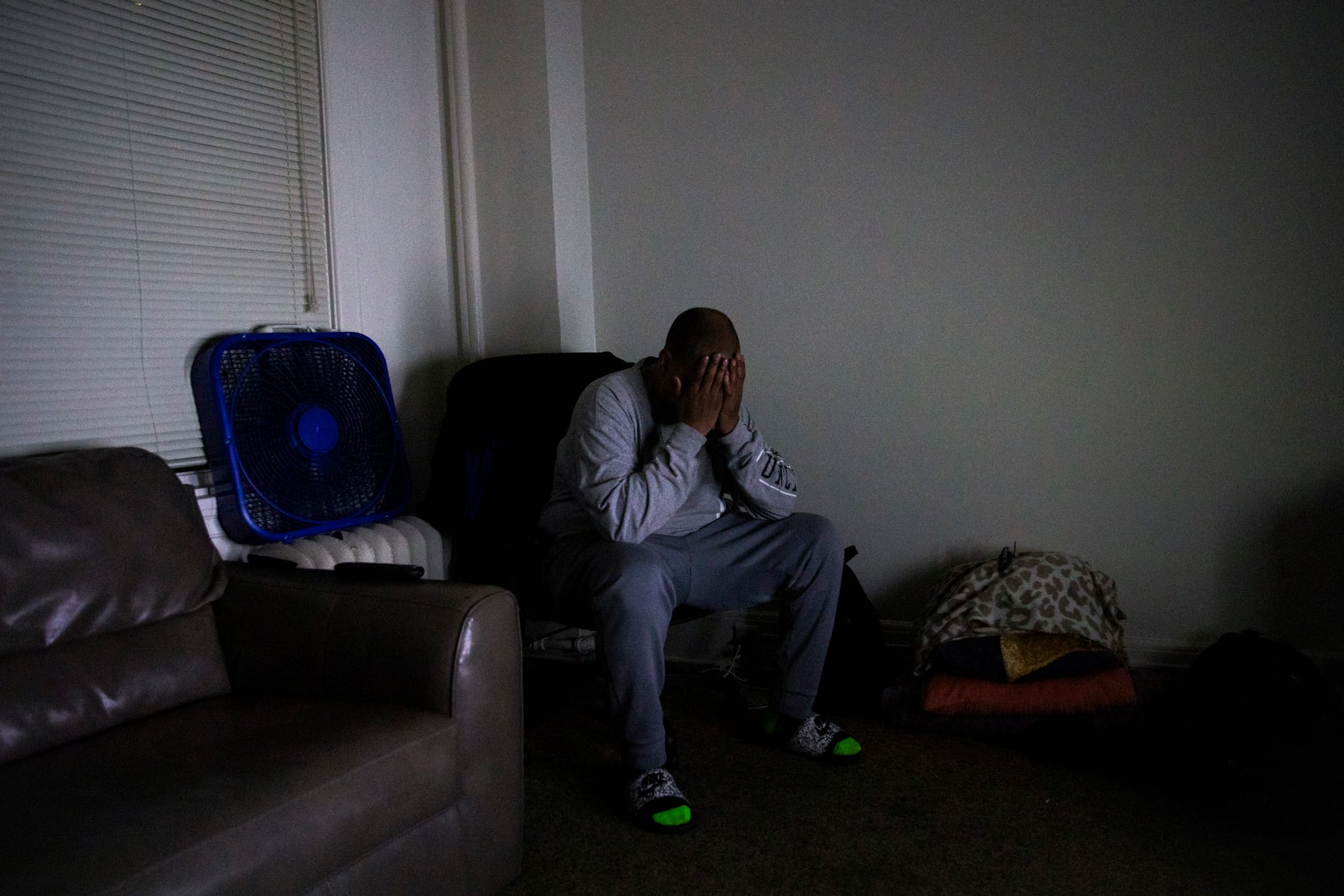
Bobbing with sharks
Today, Williams is staying with a friend — whom he calls his uncle — in a studio down the hall from his old apartment. He's thankful to share the space, but he fights the unsettled feeling that comes with knowing a space is not your own. His bed is the floor and he hasn't been sleeping well, nodding off during slow moments throughout the day.
Some nights, he stays in a shelter.
Since he lost the apartment, he hasn't felt much fight in him. For a time, he considered finding a lawyer. "But I don't even know how to do stuff like that," he said.
But his resolve is returning. Because Dwight Williams remembers living on the streets.
"It's easy to go back to doing what you used to do — relapsing — while out on the street. It's so easy and I don't want that. I don't," Williams said.
“Being homeless, they put me right back out there with the sharks. Now I'm in the water bobbing, waiting for the first one to come up. But I refuse to even acknowledge it. I'm not going to jump off a bridge or run in front of a bus or anything like that, because I'm stronger than that."
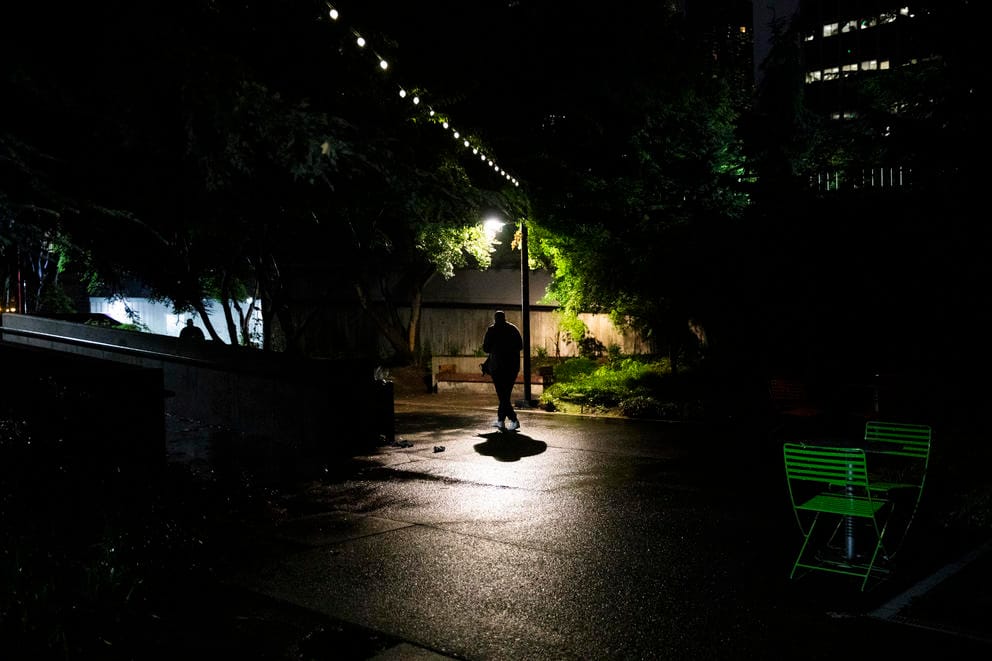
Dwight Williams walks to the bus early in the morning of Sept. 18, 2019.



